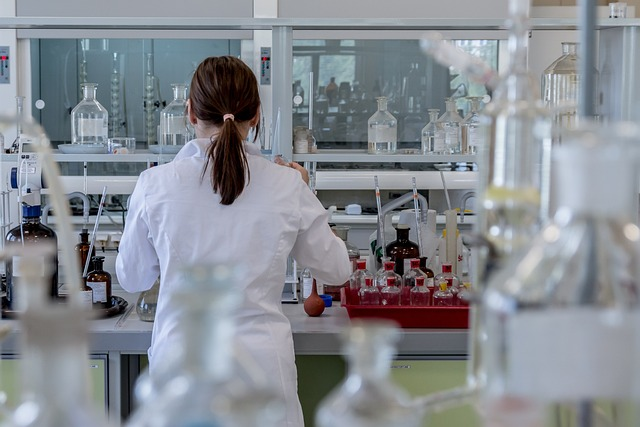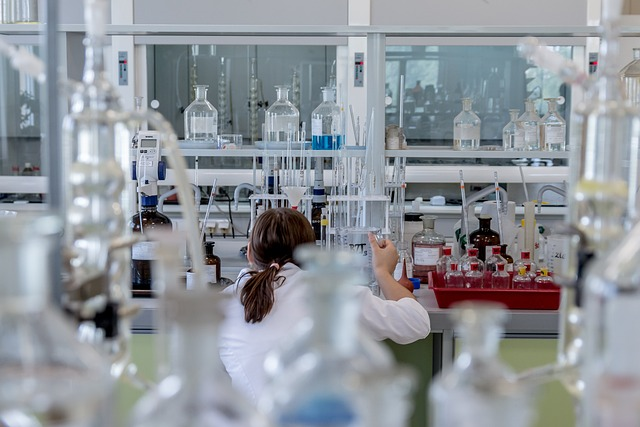When it comes to research, there are two main approaches: theoretical research and applied research.
Both types of research are essential for advancing scientific knowledge and generating new knowledge based on existing information, facts, and discoveries.
However, they differ in their goals, research methods, and outcomes.
Research is the foundation of science. It allows us to ask questions, test hypotheses, and uncover new insights. Whether you’re a student or a seasoned scholar, grasping the main difference between theoretical and applied research is important.
In this article, we’ll explore the unique characteristics, objectives, and methodologies of theoretical and applied research.
By the end, you’ll have a better grasp of how these two types of research differ and work together to drive innovation and advance our collective knowledge.
Whether you’re interested in expanding knowledge through fundamental research or solving real-world problems through applied research, especially with the advent of artificial intelligence, this article will provide valuable insights into the research process and help you make informed decisions about your own research journey.
What is Theoretical Research for Fundamental Understanding?
Theoretical research, also known as basic or fundamental research, is a type of research that focuses on advancing knowledge and understanding of a particular subject or phenomenon.
The primary goal of theoretical research is to develop and test theories that explain how the world works, without necessarily seeking to apply that knowledge to practical problems.
Research findings in this area are crucial for discovering new insights and contributing to a deeper understanding of significant problems.

One of the key characteristics of theoretical research is its emphasis on developing and testing theories. Researchers engaged in this type of research aim to create models and frameworks that can explain and predict various aspects of the natural or social world.
They may use a variety of research methods, including experiments, simulations, and mathematical modeling, to test their hypotheses and refine their theories.
Another important feature of theoretical research is its focus on expanding knowledge and understanding.
Unlike applied research, which seeks to solve specific problems or create new products and technologies, theoretical research is driven by a desire to gain a deeper insight into the fundamental principles and mechanisms that underlie a particular phenomenon.
This type of research may not have an immediate practical use, but it lays the foundation for future applied research and innovation.
Examples of theoretical research can be found across many different fields and disciplines. In the natural sciences, theoretical research might involve studying the basic properties of subatomic particles, the behavior of complex systems like the climate or the brain, or the origins of the universe.
In the social sciences, theoretical research might examine the factors that influence human behavior, the structure and function of social institutions, or the dynamics of economic systems.
Some specific examples of theoretical research include:
1. Albert Einstein’s theory of relativity, which revolutionized our awareness of space, time, and gravity 2. The discovery of the structure of DNA by James Watson and Francis Crick laid the foundation for modern genetics and molecular biology 3. Noam Chomsky’s theories of language acquisition and universal grammar, have had a profound impact on linguistics, cognitive science, and philosophy 4. The development of game theory by John von Neumann and Oskar Morgenstern, which has applications in economics, political science, and psychology

While theoretical research may not always have an immediate practical use, it plays a crucial role in advancing our knowledge and understanding of the world around us.
By forming new theories, ideas, and frameworks, theoretical researchers lay the groundwork for future discoveries and innovations that can transform society and improve our lives.
What is Applied Research to Solve Practical Problems?
Applied research is a type of research that focuses on solving specific, practical problems and creating new products, processes, or services.
Unlike theoretical research, which aims to expand knowledge for its own sake, applied research seeks to use existing scientific knowledge and theories to solve real world problems.
One of the defining characteristics of applied research is its emphasis on solving practical problems that have direct relevance to industry, government, or society as a whole.
Researchers engaged in applied research work to identify specific issues or challenges, such as improving crop yields, developing new medical treatments, or creating more efficient manufacturing processes.
They then use a variety of research methods and techniques to gather data, test hypotheses, and develop solutions that can be implemented in practice.
Applied research aims to solve practical problems by applying theoretical knowledge to real-world issues.

Another key feature of applied research is its focus on creating new products, or services. People involved in applied research often work closely with industry partners or government agencies to identify areas where new technologies or innovations could make a significant contribution.
They then use their knowledge and expertise to design, prototype, and test new products or systems that can be brought to market or implemented in real-world settings.
Applied research often builds upon existing theoretical knowledge and fundamental research.
While theoretical research may not always have an immediate practical use, it provides the foundation for future applied research by identifying key principles, mechanisms, and relationships that can be exploited for practical purposes.
Applied researchers take this knowledge and use it to develop targeted solutions to specific problems or challenges.
Examples of applied research can be found across many different fields and industries. Some specific examples include:
1. Developing new drugs or medical treatments based on insights from basic research in biology, chemistry, or genetics 2. Creating new materials or manufacturing protocols that are more efficient, sustainable, or cost-effective 3. Designing new algorithms or software tools to improve the performance of computer systems or networks 4. Conducting market research to identify consumer preferences and develop new products or services that meet those needs 5. Studying the impacts of climate change on specific regions or ecosystems and forming strategies for adaptation and mitigation
Applied research plays a crucial role in driving innovation and progress across many different sectors of society.
By focusing on solving practical problems and developing new technologies and solutions, applied researchers help translate theoretical knowledge into real-world applications that can improve people’s lives and address some of the most pressing challenges facing the world today.
Whether it’s developing new treatments for disease, creating more sustainable energy systems, or improving the efficiency of industrial SOPs, applied research is essential for driving economic growth, social progress, and technological advancement
Key Differences Between Theoretical and Applied Research
While both theoretical and applied research play crucial roles in advancing scientific knowledge, there are several key differences between these two types of research.
These differences can be seen in their objectives, methods, data, timeframes, and potential outcomes.
One of the primary differences between theoretical and applied research lies in their objectives and goals.
Theoretical research aims to expand how we understand a particular phenomenon or concept, without necessarily seeking to apply that knowledge to practical problems.
In contrast, applied research is focused on solving specific, real-world problems and developing new products, processes, or services that can be used in practice.
The methods and approaches used in theoretical and applied research also tend to differ. Theoretical research often involves using abstract models, simulations, and thought experiments to test hypotheses and develop new theories.
Applied research, on the other hand, typically involves more hands-on, empirical methods such as experiments, surveys, and case studies, which are designed to gather data and insights that can be used to develop practical solutions. Research conducted in applied settings often aims to produce measurable outcomes and solve specific problems.
Another key difference between these two types of research is the type of data that is collected and analyzed.
Theoretical research often deals with more abstract or conceptual data, such as mathematical equations or philosophical arguments. Applied research, in contrast, tends to focus on more concrete, empirical data such as measurements, observations, and statistical analyses.
The timeframes and resources required for theoretical and applied research can also vary significantly.
This often requires longer timeframes and more open-ended resources, as people involved in research may need to spend years developing and refining their ideas and theories.
Applied research, on the other hand, often operates on shorter timeframes and with more defined resources, as researchers work to develop targeted solutions to specific problems within a particular industry or sector.
Finally, the potential outcomes and impacts of both types of research can differ in important ways.
Theoretical research may lead to new ideas, concepts, and theories that transform our knowledge of the world, but may not have immediate practical applications.
Applied research, in contrast, is more likely to lead to new products, technologies, or processes that can be implemented in the real world and have a direct impact on society and the economy.
Some specific examples of the differences between theoretical and applied research include:
- A theoretical physicist studying the fundamental properties of subatomic particles, versus an applied physicist developing new materials for solar panels
- A theoretical economist developing new models of market behavior, versus an applied economist studying the impact of a particular policy on a specific industry
- A theoretical psychologist studying the nature of human consciousness, versus an applied psychologist developing new therapies for mental health disorders
Despite these differences, it’s important to note that theoretical and applied research are often closely interconnected and mutually reinforcing.
Theoretical research provides the foundation for applied research by identifying key principles and mechanisms that can be exploited for practical purposes, while applied research often generates new questions and insights that drive further theoretical inquiries.
As such, both types of research are essential for advancing scientific knowledge and addressing the complex challenges facing society today.

The Relationship Between Theoretical and Applied Research
Theoretical research and applied research are closely related and iterative. Each type informs and supports the other.
Theoretical research provides the foundation for applied research by identifying key principles and mechanisms. Experimental research, which involves studying two or more variables with a control group and an experimental group, is crucial in both theoretical and applied contexts.
For example, Einstein’s theoretical work on space, time, and gravity enabled the development of GPS and satellite communication technologies. Computer scientists’ theoretical work on algorithms and data structures has led to numerous applied technologies.
Conversely, applied research generates questions, insights, and data that drive further theoretical inquiries. As applied researchers develop new products, they encounter challenges that require a deeper understanding of underlying principles. This leads to new theoretical questions and hypotheses to be explored.
Collaboration between theoretical and applied researchers facilitates this iterative process.
Theoretical researchers work with applied researchers to identify key research questions, while applied researchers consult theoretical experts to better understand the principles behind their work. This cross-disciplinary collaboration leads to new ideas and breakthroughs.
Importance of Both Theoretical and Applied Research
Both theoretical research and applied research are crucial for advancing scientific knowledge, solving real-world problems, and driving innovation across fields.
Theoretical research expands knowledge and advances how we understand the world. By developing new ideas, theories, and models, theoretical researchers expand the frontiers of scientific knowledge and lay the groundwork for future discoveries.
Applied research translates theoretical knowledge into practical solutions that improve lives and address real-world problems.
By focusing on specific challenges, applied researchers develop new products, technologies, and processes that drive progress. This research makes significant contributions to healthcare, education, energy, and the environment.
Together, theoretical research and applied research drive innovation across many fields. By combining the creativity of theoretical research with the practicality of applied research, researchers push boundaries and create new opportunities for growth and positive change.
Theoretical Research vs Applied Research: Key Takeaways
In summary, theoretical research and applied research are two essential and interconnected aspects of the research process. They differ in objectives, methods, and outcomes but both play crucial roles in advancing scientific knowledge, solving real-world problems, and driving innovation across various fields.
Theoretical research expands our fundamental understanding by developing new theories, ideas, and models. It lays the groundwork for future discoveries by identifying key principles and mechanisms.
Applied research translates theoretical knowledge into solving problems by coming up with practical solutions that address specific challenges and improve lives. It generates questions, insights, and data that inform further theoretical inquiries.
The iterative relationship between theoretical and applied research is strengthened by collaboration among researchers from different fields. This cross-disciplinary approach leads to ideas and breakthroughs.
Recognizing the importance of both theoretical and applied research is crucial for students, researchers, and professionals.
Identifying the characteristics, objectives, and methodologies of each type helps individuals make informed decisions about their projects and careers.
Fostering collaboration between theoretical and applied researchers accelerates discovery, innovation, and progress, leading to better solutions to complex challenges facing society.









